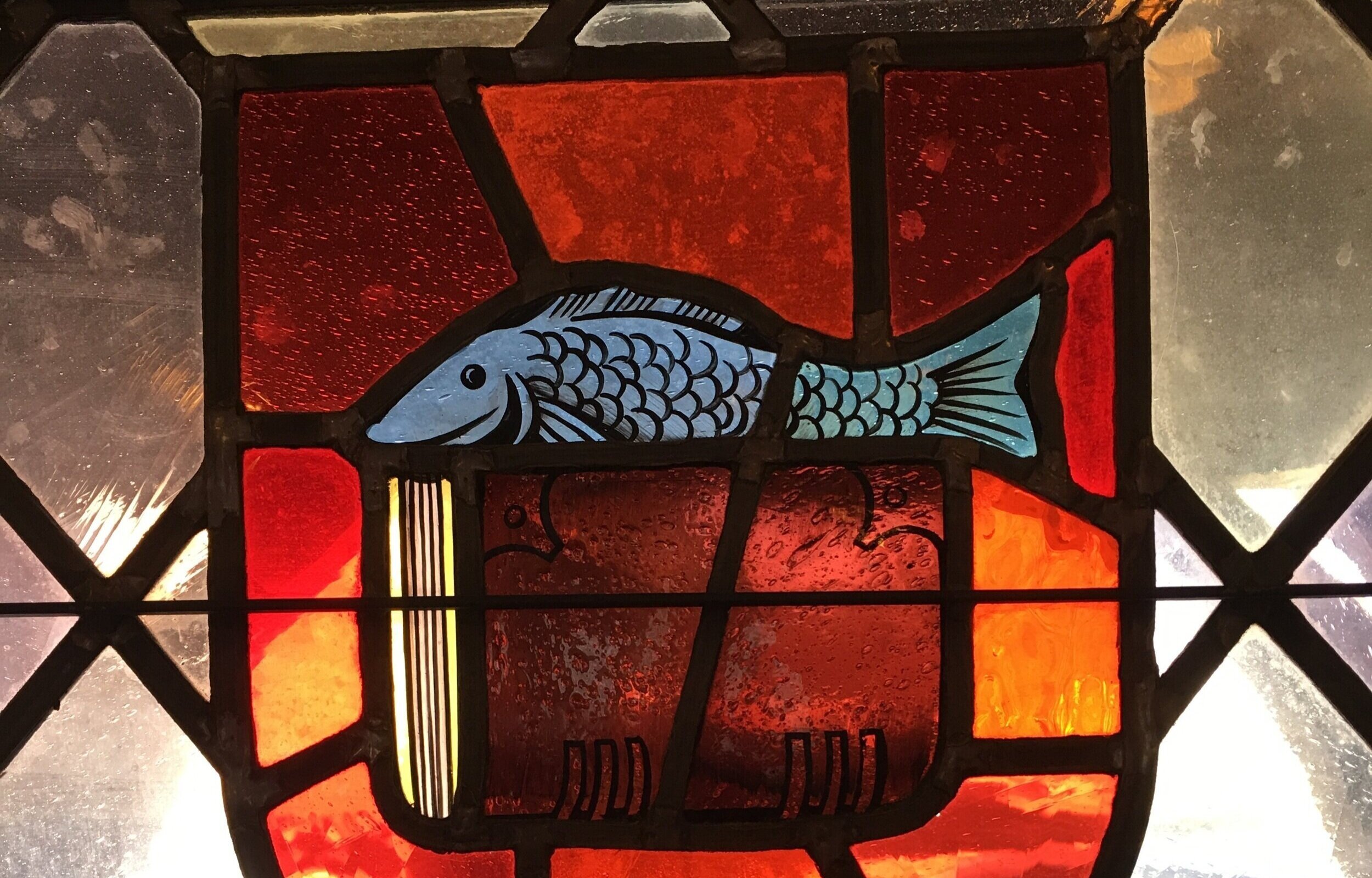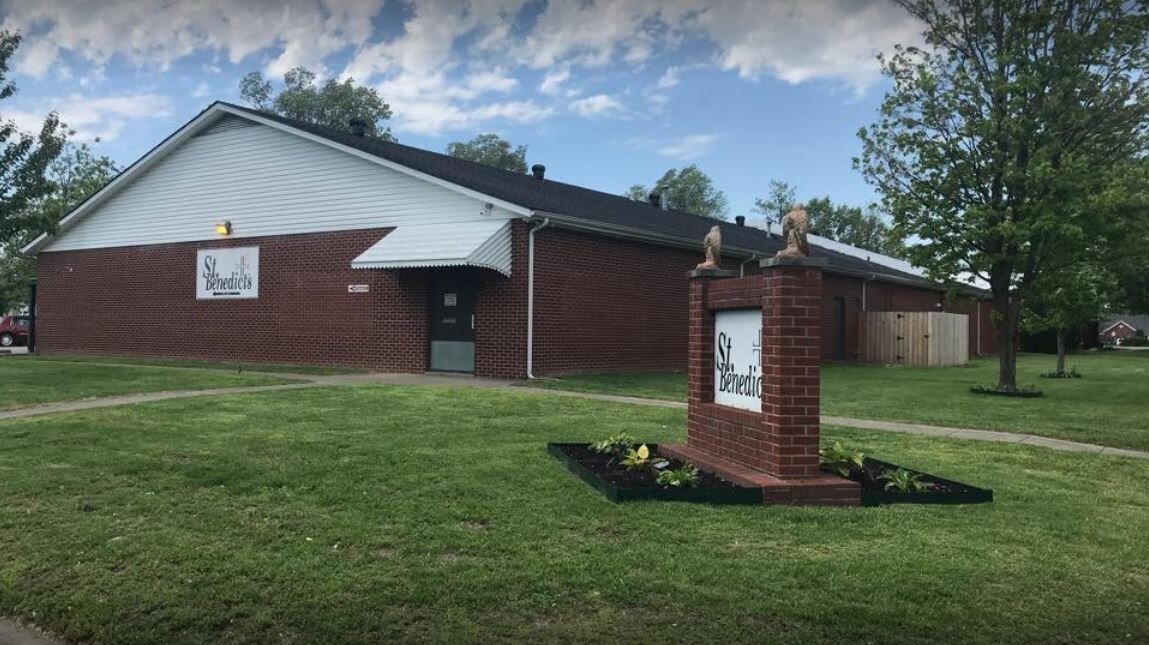
Trinity Church Outreach
Heavenly Father, whose blessed Son came not to be served but to serve: Bless all who, following in his steps, give themselves to the service of others through outreach ministry, especially in CrossRoads to Hope Shelter for Women and Children, Episcopal Relief and Development, Habitat for Humanity, The Help Office of Owensboro, Hospice of Western Kentucky, Matthew 25 AIDS Services, and Saint Benedict’s Emergency Shelter for Men.
OUTREACH
The Crossroads To Hope Shelter for Women and Children
CrossRoads to Hope is a 501(c) (3) nonprofit organization established in 2006 to create an interdependent network of individuals and organizations working together to combat poverty and homelessness in Daviess County, Kentucky. We were originally located in the basement of New Life Church, where we operated a soup kitchen and other programs to feed the hungry. We moved to 1631 Breckenridge Street in April 2014. Our new facility allows expansion of services to the poor and provides the necessary space to move forward with the next phase of our vision ~ opening a Community Day Center for the homeless and a walk-in overnight emergency shelter for women. Our mission is to alleviate the symptoms of poverty, while providing common ground where the growth and development of hope is fostered through community service. We believe that when we interact with one another, we are all changed; socioeconomic, theological and cultural differences fade away, opening the door to a more just world.
Habitat For Humanity
The idea that became Habitat for Humanity first grew from the fertile soil of Koinonia Farm, a community farm outside of Americus, Georgia, founded by farmer and biblical scholar Clarence Jordan. On the farm, Jordan and Habitat’s eventual founders Millard and Linda Fuller developed the concept of “partnership housing.” The concept centered on those in need of adequate shelter working side by side with volunteers to build decent, affordable houses. The houses would be built at no profit. New homeowners’ house payments would be combined with no-interest loans provided by supporters and money earned by fundraising to create “The Fund for Humanity,” which would then be used to build more homes. Beau and Emma were the owners of the first home built by Koinonia’s Partnership Housing Program. They and their five children moved into a concrete-block home with a modern kitchen, indoor bathroom and heating system, replacing the unpainted, uninsulated shack with no plumbing where they had previously lived. In 1973, the Fullers decided to take the Fund for Humanity concept to Zaire, now the Democratic Republic of Congo. After three years of hard work to launch a successful house building program there, the Fullers then returned to the United States and called together a group of supporters to discuss the future of their dream: Habitat for Humanity International, founded in 1976. Thanks in no small part to the personal involvement of U.S. President Jimmy Carter and his wife Rosalynn and the awareness they have raised, Habitat now works in communities across the U.S. and in approximately 70 countries and has helped millions of people achieve strength, stability and independence through safe, decent and affordable shelter.
Episcopal Relief & Development
Episcopal Relief & Development’s mission is to seek and serve Christ in all persons and respect the dignity of every human being. Originally called the Presiding Bishop’s Fund for World Relief (the PB Fund), the organization was established in 1940 by The Episcopal Church. Its initial mission was to assist refugees fleeing Europe during World War II. Soon after the war, the agency’s efforts expanded to include additional humanitarian assistance, focusing mostly on disaster relief. During the 1960s and 1970s, there was a growing awareness in the US of the challenges facing people worldwide, such as hunger, disease and disasters. With increased funding, the PB Fund took efforts to the next level by increasing its operational capacity and expanding programming to incorporate sustainable development. In the 1980s, major fundraising initiatives supported responses to famine in Ethiopia, an earthquake in Mexico and a volcano eruption in Colombia. In 1988, Episcopal Migration Ministries was formed, founded out of the PB Fund to meet the growing needs of refugee ministries, allowing the Fund to focus on long-term development work. After Hurricane Mitch in 1998, the PB Fund undertook innovative disaster relief work in Honduras that focused on integrated community development. In 2000, the PB Fund was renamed Episcopal Relief & Development to emphasize its disaster relief work and its increased programmatic focus on integrated community development. Two years later, Episcopal Relief & Development was incorporated as an independent, 501(c)(3) organization. In 2003, the Board of Directors decided to shift from administering small grants for domestic and overseas projects to implementing long-term development programs and partnerships worldwide. In 2012, Episcopal Relief & Development began incorporating the Asset-Based Community Development approach into all of its work. The organization has also realigned and expanded its program focus areas to address cross-cutting themes such as gender equality, micro-finance, disaster risk reduction and climate change. At the end of 2016, Episcopal Relief & Development’s Board of Directors approved a new strategic plan that affirms and expands the organization’s programs in three key areas: Early Childhood Development, Combatting Gender-Based Violence and Resilience & Climate Change.
Hospice of Western KY
Hospice of Western Kentucky is a non-profit, Medicare-certified organization. Our services are provided without regard to race, color, religion, age, gender, sexual orientation, handicap (mental or physical), place of national origin, diagnosis, or ability to pay. Located in the city of Owensboro, Hospice of Western Kentucky provides end-of-life services in Daviess, Hancock, Hopkins and Muhlenberg counties. At Hospice of Western Kentucky, we believe each day can be filled with precious moments, and our entire team is dedicated to helping make those moments possible for our patients and their families. It is a mistake to think that choosing hospice means giving up. Hospice care is not about dying; it’s about living life as fully as possible for as long as possible. Still, we understand that facing a life-limiting illness is never easy, and we are truly honored and humbled when you ask us to walk this important journey with you. Our mission is to provide support and care for those in the final phase of a life-limiting illness so they can live as fully and comfortably as possible. Hospice affirms life and regards dying as a normal process. Hospice neither hastens nor postpones death. Rather, through personalized services and a caring community, hospice helps patients and families prepare for a death satisfactory to them.
Matthew 25 AIDS Services, Inc. began as a volunteer organization in 1996 developed through Zion United Church of Christ in Henderson, KY, which was struggling with how to make a difference in the lives of those infected with and affected by HIV/AIDS from within their own congregation. By 1999, Matthew 25 AIDS Services was incorporated and moving forward to offer more services to our clients served in Western Kentucky and Southern Indiana. In 1999, we were granted 501(c)(3) status, which allowed us to seek funding to enlarge our organization with full-time paid staff. In 2000, Matthew 25 was awarded a Ryan White Planning Grant to evaluate the need for clinical services in the area, as well as a HOPWA (Housing Opportunities for People with AIDS) grant to assist with housing needs. In 2001, we were awarded a Ryan White Part C Grant for Early Intervention Services to open our medical clinic. Matthew 25’s mission is to support, educate and treat those infected with and affected by HIV/AIDS. We recognize that HIV/AIDS is a real disease affecting real people. Real(istic) prevention and treatment is the only way to fight the continuing spread of HIV. Through holistic care and support services, Matthew 25 strives to reduce the number of new HIV infections and improve the quality of life for those already fighting HIV/AIDS. Through our medical case management efforts which span twenty-five (25) counties in Western Kentucky, we are able to offer our clients supportive services that can help with insurance premiums, housing and utility assistance, transportation, nutritional supplements and groceries, medication assistance, and mental health, dental and vision services. This coupled with excellent specialized medical care greatly improves their chances to enjoy full productive lives for many years. We, at Matthew 25 AIDS Services, strive to give our clients the tools they need to make better life choices, while medically treating their disease in the most supportive and dignified atmosphere possible.
St. Benedict’s Emergency Shelter for Men
St. Benedict’s Emergency Shelter for Men is the only emergency shelter in Owensboro. We serve 60 men every night and estimate serving 350+ men a year. Our mission is to provide a safe, non-judgmental environment where residents can have a warm place to sleep, shower, eat, and wash their laundry in a Christian atmosphere. St. Benedict’s addresses barriers many of these men face in becoming independent by providing life skills classes, acute case management, ministering, transitional housing, and advocating services and resources. We also provide them with spiritual counseling through Bible studies and more. We are an overnight facility open Monday through Sunday from 6 PM to 8 AM. Check-in for residents is between the hours of 7 PM and 10 PM on a first-come, first-serve opportunity. Doors open at 6 PM for daily Bible study. Dinner is served at 8 PM and a light breakfast is served at 7 AM before check-out at 8 AM.






